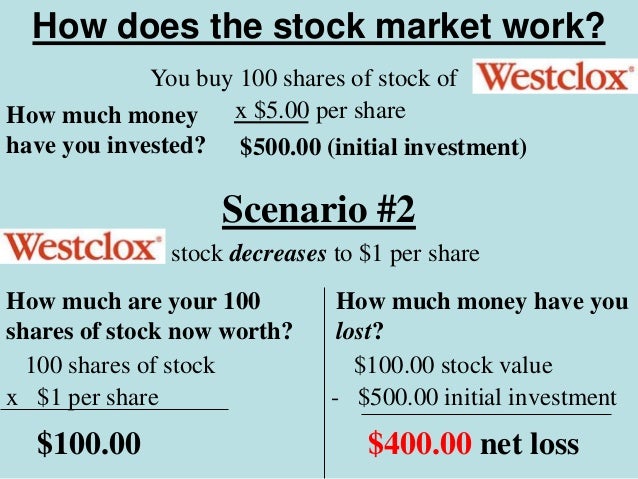If the idea of purchasing the stock market terrifies you, you are not alone. People with extremely minimal experience in stock investing are either terrified by scary stories of the typical investor losing 50% of their portfolio valuefor example, in the two bearish market that have actually already taken place in this millennium or are beguiled by "hot tips" that bear the pledge of huge benefits but rarely settle.
The reality is that investing in the stock exchange brings threat, but when approached in a disciplined way, it is one of the most effective methods to develop up one's net worth. While the value of one's home generally represents the majority of the net worth of the typical specific, the majority of the affluent and really abundant generally have most of their wealth invested in stocks.
Secret Takeaways Stocks, or shares of a business, represent ownership equity in the company, which give shareholders voting rights in addition to a recurring claim on business diigo.com/0lih49 earnings in the form of capital gains and dividends. Stock exchange are where individual and institutional investors come together to purchase and offer shares in a public location.
A specific or entity that owns 100,000 shares of a business with one million exceptional shares would have a 10% ownership stake in it. Many business have impressive shares that face the millions or billions. Common and Preferred Stock While there are 2 primary kinds of stocktypical and chosenthe term "equities" is associated with typical shares, as their combined market price and trading volumes are lots of magnitudes bigger than that of favored shares.

Preferred shares are so named since they have preference over the typical shares in a company to get dividends in addition to possessions in case of a liquidation. Typical stock can be further classified in terms of their ballot rights. While the standard property of common shares is that they need to have equivalent ballot rightsone vote per share heldsome companies have dual or multiple classes of stock with various voting rights connected to each class.